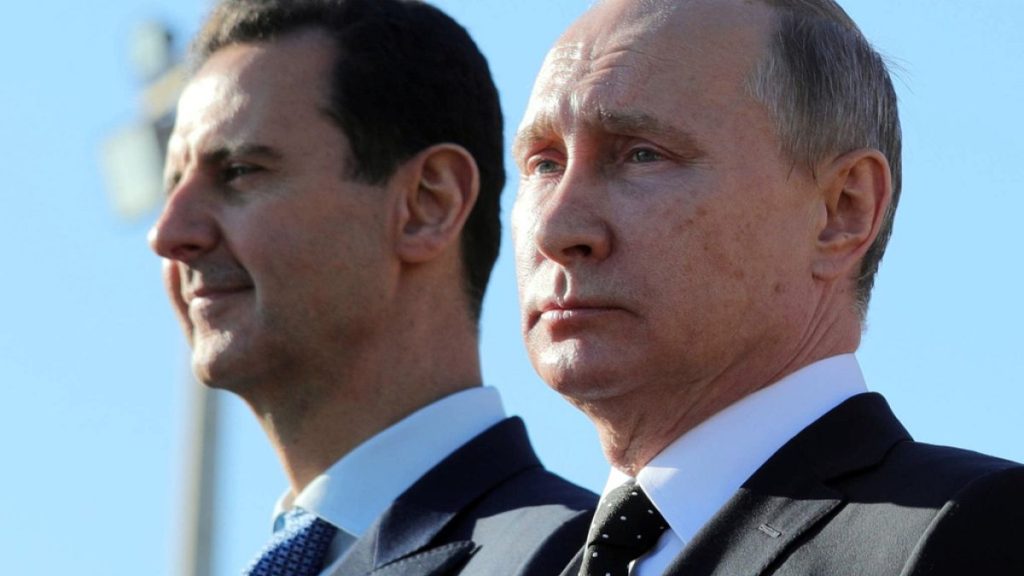The unexpected collapse of the al-Assad regime in Syria after 13 years of brutal civil war has sent ripples across the geopolitical landscape, prompting analysis of the contributing factors and potential consequences. While a rebel offensive led by Hayat Tahrir al-Sham (HTS) ultimately toppled Assad, forcing him to seek refuge in Moscow, the underlying erosion of Russian power, exacerbated by its war in Ukraine, played a significant role. Ukraine’s staunch resistance, bolstered by substantial US military and financial aid, has severely depleted Russia’s military resources and international standing, ultimately diminishing its capacity to prop up its Syrian ally. This development underscores the interconnectedness of global conflicts and highlights how support for Ukraine extends beyond its borders, impacting power dynamics in other volatile regions.
Andriy Yermak, head of the Ukrainian Presidential Administration, argues that the weakening of Russia’s military capabilities due to the war in Ukraine directly contributed to the fall of Assad. Russia’s substantial losses in personnel and equipment, documented by the Ukrainian Ministry of Defence, have strained its ability to maintain its military presence in Syria, including the crucial naval base in Tartus and the airbase in Khmeimim. These bases, according to Yermak, served as platforms for projecting Russian and Iranian influence and furthering anti-American sentiment in the region. The inability to adequately supply these bases, coupled with the immense drain on resources caused by the Ukraine war, ultimately weakened Russia’s grip on Syria and its ability to support the Assad regime.
The loss of Syria as a strategic foothold represents a significant blow to Russia’s global standing and its perceived ability to protect its allies. Yermak contends that this sends a clear message to other authoritarian regimes reliant on Russian support, such as Iran, that Putin’s backing may not be as reliable as once thought. The crumbling of Russian influence in Syria has further implications for its ambitions in other regions, including Africa, where it has leveraged its Syrian presence to expand its geopolitical reach. This weakening also undermines Russia’s ability to effectively challenge NATO and exert influence in the Middle East and North Africa, a region of critical geopolitical importance.
The shift in power dynamics in Syria has also ushered in a new era of uncertainty, with the HTS leader, Ahmad al-Sharaa, formerly known as Abu Mohammed al-Jolani, attempting to rebrand himself as a moderate statesman. His past as the head of an al-Qaeda affiliate in Syria casts a long shadow over his current attempts to engage with international partners, including Turkey and the United States. While a US delegation recently met with al-Sharaa, Washington remains cautious, linking any potential recognition of his leadership to concrete progress on minority rights, counterterrorism efforts, and inclusive governance. The complexities of navigating this transition underscore the challenges of building stability in a war-torn nation with a complicated history and a leader whose past raises serious concerns.
The collapse of the al-Assad regime presents both challenges and opportunities. Ukraine, as stated by President Zelenskyy, is interested in contributing to regional stability and eliminating any remaining Russian influence in Syria. The potential for cooperation between Ukraine and the new Syrian leadership, however fragile and uncertain, exists, particularly in addressing the shared experiences of conflict and rebuilding. This unexpected turn of events has also created an opening for the US to re-engage in the region and potentially shape the future trajectory of Syria, albeit with cautious optimism given the volatile political landscape and the uncertain nature of al-Sharaa’s leadership.
The Syrian conflict and Russia’s intervention offer valuable lessons about the far-reaching consequences of geopolitical ambitions and the interconnectedness of global power dynamics. Russia’s initial intervention in 2015, aimed at bolstering Assad and challenging US influence, ultimately backfired, resulting in a significant drain on its resources and a damaging blow to its international reputation. The unfolding events demonstrate the fragility of alliances built on authoritarianism and the unpredictable nature of conflict in a complex, interconnected world. The collapse of the Assad regime, partly fueled by Ukraine’s resistance and US support, underscores the importance of strategic alliances and the enduring pursuit of freedom and sovereignty, ultimately shaping a new chapter in the ongoing struggle for global power and influence.














